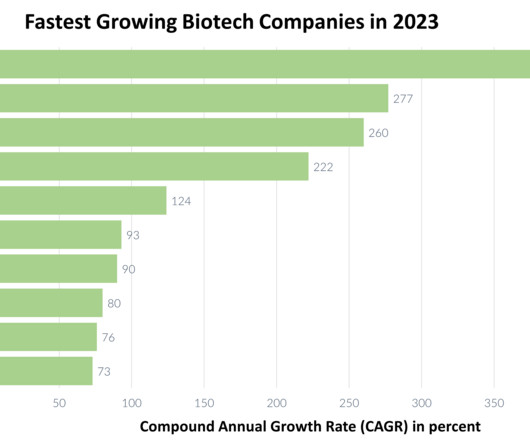GSK’s Maria Reyes Boceta-Muñoz Talks Vaccine Development in a Post-Pandemic World
XTalks
SEPTEMBER 5, 2023
Vaccines have been an integral piece of the global public health toolbox for over 200 years, but the COVID-19 pandemic brought about a new era in vaccine development with renewed interest in mRNA technology and unprecedented accelerated regulatory approvals. What are the major challenges you’re facing right now in vaccine development?













Let's personalize your content